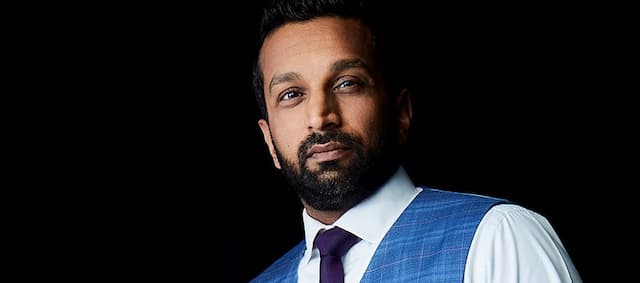Our Worst Fears Realized in Kabul
CLAY: We’ve been talking about the mess in Afghanistan now for a couple of weeks, and things have gotten much worse as we have been warning that they might be. We’re in the middle of a breaking news story. Multiple explosions outside of the Kabul airport have killed many and wounded at least three United States Marines. It is chaos on the ground in Kabul, the most disastrous foreign policy decisions of most of our lives made by the Biden administration.
Saigon on steroids. Benghazi on steroids. Whatever awful scenes you may be thinking of whether it’s Saigon in 1975 or you’re thinking Hillary Clinton and the Benghazi mess that went on, things are worse than that on the ground right now in Afghanistan. It’s likely, by the time our troops leave, that there are going to be thousands of Americans potentially still left behind. We could have hostage crisis situations which, thankfully, we have not yet had.
It’s certainly not safe for anyone who is trying to evacuate Afghanistan to get to the airport right now. We are going to be following all of this as this breaking news continues. The White House has a press availability scheduled. We will see what they have to say. We have got great guests lined up for you. Sean Parnell, who was on the ground in Afghanistan, will join us in the back half of this hour.
Kristi Noem, the governor, has been involved in some of the Afghanistan decisions as a governor. She is scheduled to join us in the second hour. And then a report who did phenomenal work on the ground in the Middle East, Lara Logan, now with Fox News, will join us in hour 3. But I want to begin the show; we’ll bring in Buck here right after this. This is an eyewitness describing the scene after the explosions in Kabul, Afghanistan. Listen to this.

TRANSLATOR: I’m an Afghanistan translator for the United States Marine Corps. I was over here to go and get — go to the and airport get on a plane and get out of here. There was an explosion that happened inside the crowd, a lot of people got hurt. And I got a baby girl; she was 5 years old. She died right in my hands. . I don’t know what exactly what is going on over there, but I think some of the Americans, they got hurt too. And so people are running around. Right now, I have some casualties with me in my vehicle, and I’m taking them to the hospital.
CLAY: A 5-year-old died in his arms. Some of you may have had difficulty hearing that, obviously. You can imagine reacting in real time on the ground. Buck, we’ve been warning that this could get much worse than it already was, and it could be getting much worse from here. At this point, there’s no other way to describe this than an unmitigated disaster the likes of which we haven’t seen in decades of American foreign policy.
BUCK: As soon as we reported, Clay, on that threat stream yesterday, everybody who knows this part of the world who’s worked in counterterrorism or just on the nationalization side/military side, knew that we were in for a very rough 24-48 hours, because it’s hard enough to protect soft targets when the U.S. military is fully deployed. Because you’re talking about people that are willing to go into a crowded marketplace, people that are willing to go into any congregation of people and just try to create mass casualties.
It’s not a difficult thing to do. And as we know, there’s a lot of explosives and munitions around Afghanistan to make suicide vests or S-vests. But we’re reliant… The first line of security… This almost… It’s hard to say it out loud, but it’s true. Our first line of defense right now for Americans and Afghans crowding in the gates of Kabul International Airport is Taliban checkpoints!
CLAY: Yes.
BUCK: And I know people are saying, “How can that be?” Now, I’m not, obviously, claiming the Taliban is trying its best. We don’t know exactly who they’re letting through, how they’re letting them through, were they absolutely complicit in this attack. But you’d have to say, if they wanted to be complicit in attacks, it wouldn’t be hard at all. So if it’s only a handful of them, a couple of them, as it seems, right now…
But, Clay, I’m worried we could have more attacks even while we’re on the air here. It looks like it’s the work… This would tie in to the threat reporting from yesterday. By the way, Clay, when they say “very credible, very specific threat stream” like that, they’re basically telling people a bomb is coming, right?
CLAY: Yeah.
BUCK: That’s what that means. ‘Cause usually if it’s more unspecified. If it’s a possibility, they’ll use different language in the reporting streams. But we knew this was likely coming, and it just highlights the helplessness that the U.S. government — the Biden administration, largely — has right now. We’re relying on the Taliban to let people through checkpoints. We’re also reliant on the Taliban to prevent ISISK or ISIS Khorasan branch, the Islamic State of Khorasan, from attacking civilians.
They know where they’re gonna be. They know they’re gonna be… They’re talking about the civilians now. They’re distracted. They’re packed in together. They’re under tremendous stress as it is. You can just imagine you’re with your family, you’re trying to get through this crush of people. Now every person that you are near — man or woman — could be a suicide bomber.
You just don’t know. And think of what this will mean for the processing, which already has slowed down to the point where we’re worried not all of our Americans are gonna get out of that in time. Clay, it’s taking long enough for people to fight through and have their papers looked at. If they’re gonna have to do checks for suicide vests, they’re gonna be processing people for months. And we don’t have months. We’ve got hours.
 CLAY: Not only that — and I think that’s well said, and you hinted at this. Think about this from the perspective of you are family, right, and you know that you’re trying to get back to America, and you’ve been traveling across Afghanistan, which is incredibly difficult. You’ve gotten to Kabul and you’re close to that airport, is it in any way advisable for you to be in a crowd at this point if you’ve got kids?
CLAY: Not only that — and I think that’s well said, and you hinted at this. Think about this from the perspective of you are family, right, and you know that you’re trying to get back to America, and you’ve been traveling across Afghanistan, which is incredibly difficult. You’ve gotten to Kabul and you’re close to that airport, is it in any way advisable for you to be in a crowd at this point if you’ve got kids?
You just heard that clip that we played, a 5-year-old little girl died in what probably is a suicide attack. We don’t know for sure how exactly the bombing took place, but it seems likely that it was a suicide attack. To your point, Buck, the way that people dress in Afghanistan, it makes it almost impossible to see who would be able to be a threat, right? It’s not as if this is the United States and if you got a guy in a shirt T-shirt and shorts, you can feel a little bit better about the likelihood that he probably doesn’t have a suicide vest.
You got somebody garbed up in all different sorts of layers of clothing, it’s hard to know who is a real threat, who is not. The timing here is a mess. And I want to circle back around to what I think is significant, Buck. We have given American security over to a terrorist organization that is not even willing to acknowledge that Osama Bin Laden was involved in 9/11. I want you to listen to this interview.
We are entrusting the safety of Americans to a terrorist organization which is browbeating us, which is not allowing us to take as much time as we need to get our people out, which didn’t have the respect to even wait ’til we left the country to take over all of Afghanistan. We are trying to treat them as a coequal branch of government deserving of attention for the United Nations. And listen to this interview where there is a discussion about whether Osama Bin Laden was involved in 9/11. This is a Taliban leader.
ZABIULLAH MUJAHID: When Osama Bin Laden became an issue for the Americans, he was in Afghanistan. Although there was no proof he was involved, now we have given promises that Afghan soil won’t be used against anyone.
RICHARD ENGEL: You still don’t think that Osama Bin Laden carried out 9/11?
ZABIULLAH MUJAHID: There is no evidence! Even after 20 years of war, we have no proof he was involved.
CLAY: These are the people that we’re relying on, Buck. We are relying on the Taliban who right now are telling us their leadership, that there’s no proof that Osama Bin Laden was involved in 9/11. If we were… This is a big question. But, Buck, if we were willing to impeach Donald Trump — the Democrats, I should say. We aren’t all willing, but he was impeached over a phone call in Ukraine with the Ukraine president, what in the world should happen to Joe Biden for this disaster on the ground in Afghanistan?
BUCK: They’re gonna say that this is for the voters to decide, Clay. The problem is you usually don’t think that a presidency is going to be in free fall and near collapse in its first year in this way.
CLAY: Yeah.
 BUCK: The Biden administration has no good answers for what this is gonna look like in the next few days. There’s no way to dramatically enhance security on the outskirts of Kabul airport. There’s so many ways this can go bad and get much worse, which is I think why in the last few days you could feel the tension has been rising.
BUCK: The Biden administration has no good answers for what this is gonna look like in the next few days. There’s no way to dramatically enhance security on the outskirts of Kabul airport. There’s so many ways this can go bad and get much worse, which is I think why in the last few days you could feel the tension has been rising.
Because, as we learn more about how many Americans were on the ground there, how many special immigrant visas/SIV holders were unable to get out of the country and still have been unable to get their paperwork shown to the proper authorities in Kabul airport to get out of there, this is… Clay, with each passing hour the options get worse, the threat level rises —
CLAY: Yes.
BUCK: — and the window to prevent a tragedy here, more tragedy than we’ve already seen, obviously. We’ve got three Marines wounded, one seriously, based on the reports I’ve seen, and who knows how many Afghans killed in this attack. And you rightly point out, it could be a bomb that was left in a bag, or it could be… I mean, the money so to speak, the odds are —
CLAY: If had to choose based on what you know, the odds would be a suicide bomber.
BUCK: Yeah, because ISIS — and they do this because of the messaging right? The Islamic State of Khorasan wants everybody to know that the Taliban — and this, again, sounds crazy, and it is crazy. But they think, ISISK, that the Taliban is too moderate.
CLAY: Yeah.
BUCK: Just so everyone understands. So if you’re trying to prove that the Taliban is too moderate, having some of your mujahideen, some of your fighters deploy in suicide bombing for a complex attack like this, it’s about the propaganda as well as the casualties, right? Because obviously if you’re trying to maintain your own people, you would just place bombs. They have; we’ll see.
But usually, they’ll use the suicide vest tactic because, one, they know they’ll get right up to exactly who they’re trying to hit; and, two, “Our martyrs have now made themselves known,” and, Clay, there’s already reporting… I’m talking about right now. There’s a real possibility of future follow-on attacks. What if the Taliban all the sudden says, “We can’t guarantee security at the airport, so we’re shutting it all down”? Then what do we do?
CLAY: This is… I don’t know how much worse it can get for Joe Biden than it is right now. And, again, we’re following all of this story in real time, two different explosions reported. We’re going to continue to give you every moment update as we get it. But this is just absolute chaos, absolute maelstrom. It’s what we were all hoping would not occur.
BREAK TRANSCRIPT
BUCK: We’ve got updates here on the multiple explosions at Kabul International Airport as we’re trying to work against the clock and get every American and every Afghan lawfully promised safe haven as an SIV to get out of there. And 13 dead, 52 wounded in these Kabul explosions as of now. As is the case, having spent a lot of time covering and analyzing terrorist incidents, unfortunately, it’s very likely those numbers will grow. Thirteen dead, 52 wounded. We don’t have much in the way of specifics on this. But we do know that this is only going to get more difficult. And we are reliant on the Taliban for external perimeter security outside the airport ring.
SECRETARY OF STATE BLINKEN: Our focus right now is on getting our citizens and getting other — our partners, uhh, Afghan partners, third-country partners who have been working in Afghanistan with us, uhhh,m out of the country into safety. And for that purpose first, uhhh,m the Taliban, whether we like it or not, is in control, largely in control of the country, certainly in control of, uhhh, the city of Kabul, umm, and it’s been important to, uhh, work with them to try to facilitate and ensure, uh, the departure of all those who want to leave.
 BUCK: Clay, in addition to that, right now there’s a Fox News headline, bottom of the screen: “Attacks likely to continue in Kabul. Hundreds of ISISK in the vicinity of Kabul, the airport, and its environs.” And we’re dependent on the Taliban — think about this — to stop them from infiltrating and continuing to hit the crowds outside the airport.
BUCK: Clay, in addition to that, right now there’s a Fox News headline, bottom of the screen: “Attacks likely to continue in Kabul. Hundreds of ISISK in the vicinity of Kabul, the airport, and its environs.” And we’re dependent on the Taliban — think about this — to stop them from infiltrating and continuing to hit the crowds outside the airport.
CLAY: That is significant, and I want to reiterate and come back to it for people out there who might be wondering, “Okay, what’s the relationship between ISISK and the Taliban?” ISISK thinks that the Taliban, according to your analysis, is too moderate.
BUCK: Yes.
BUCK: They are play spoiler here.
CLAY: Yeah.
BUCK: So their interest and the Taliban’s immediate interests right now — and there’s a lot of layers of complexity here. And let’s also remember that all of our analysis back here in the states, we have to take into account that our military intelligence, civilian intelligence agencies, the White House, all of them. They missed —
CLAY: Yes.
BUCK: — a blitzkrieg the likes of which from the Taliban it’s still mind-blowing that it happened as quickly as it did, the 30,000-plus Afghan national security forces, Clay, essentially just evaporated, didn’t even fall, evaporated, didn’t even fight. So when you miss that, it’s very hard to believe that you have good sourcing and good information back here in the United States.
CLAY: Yes.
BUCK: We can’t know what’s going on on the ground in Afghanistan.
CLAY: Yes.
BUCK: That said, the Taliban seemed, at least in recent days, to want to leverage the airlift and at least allow it to happen to an extent or to gain some international legitimacy. And it’s an obvious humiliation no matter what. ISIS Khorasan looks at this as an opportunity to say, “None of that. We want to bloody the U.S. on the way out.
“We want to create abject chaos, mayhem, and murder on the way out, and then force the Taliban to come over to our side by being effectively a part of this whether they want to or not,” right? At some point if they can create enough violence and make it seem like the Taliban isn’t doing anything — or maybe even decide that it’s time to just go after Americans entirely — we’re in a very different place.





